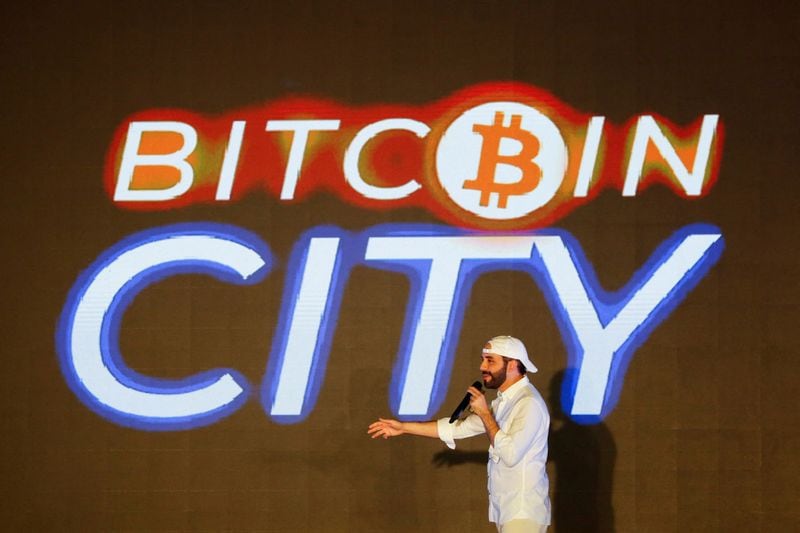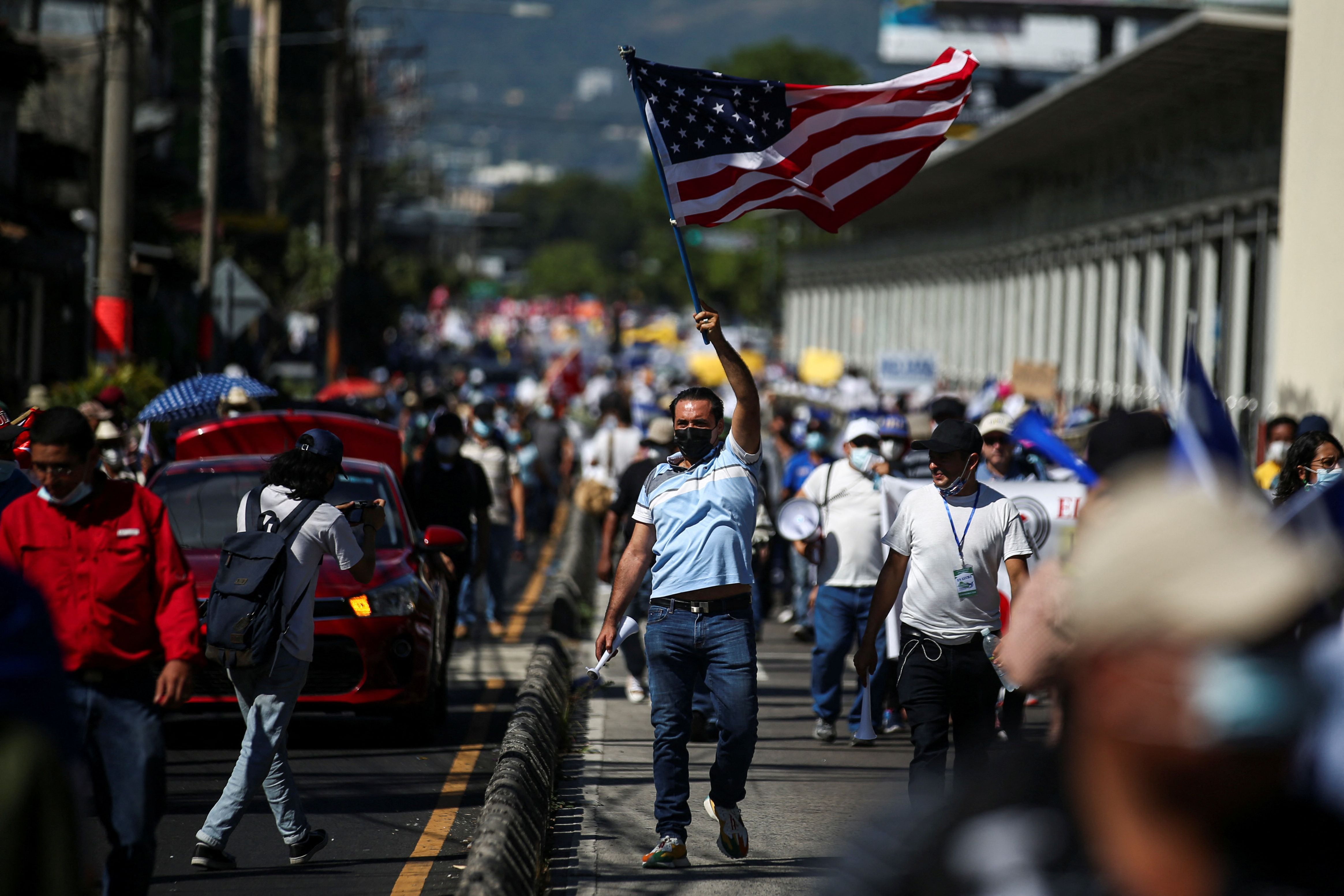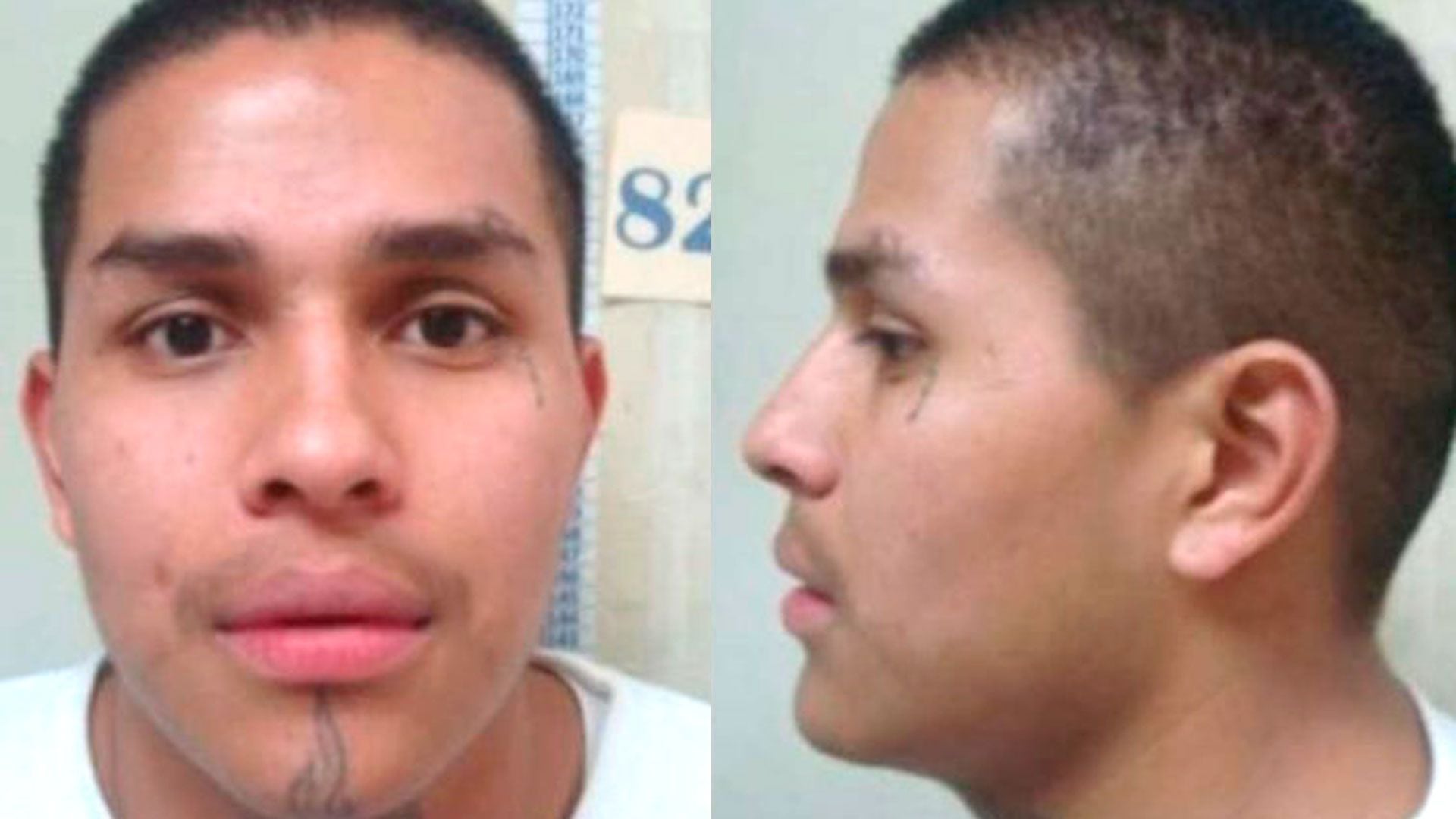
Plans to finance El Salvador's debt at the point of Bitcoin-protected bonds remain unsettled to President Nayib Bukele. During the third week of March, his government had to postpone the issuance of those bonds amid contradictory explanations.
The Bukele administration has been preparing for several months to issue bitcoin bonds for USD 1 billion through La Geo, the energy production company in which the Salvadoran State is a majority partner through the Lempa River Hydroelectric Executive Company (CEL). Last February, Finance Minister Alejandro Zelaya, the main executor of the plan, traveled to Europe to try to convince potential investors to invest in the bond.
There is no precise information on how lucky the government has been in placing the bonds. Minister Zelaya said on Tuesday, March 22, in a television interview that they estimate that demand will be around US$1.5 billion, but he also said, in that conversation, that the government had delayed the issuance of the bitcoin bond pending “the right time” to launch it on the market.
The initial launch date was between March 15 and 20, according to information released by Reuters, but the collapse of cryptocurrency following the Russian invasion of Ukraine has caused markets to tumble and Bitcoin dropped by half of what it was worth at the end of 2021. Minister Zelaya set the deadline for the issue in September, pending the stabilization of the market.
According to Ricardo Valencia, a Salvadoran professor based in the United States, the Russian invasion of Ukraine plays no small role in this issue. In a recent article, Valencia compared Bukele to Vladimir Putin, the Russian dictator, and elaborated on how the siege imposed by the West on Moscow has also affected the Salvadoran's bombastic narratives.
“The main audience for this strategy is made up of anarcho-capitalist and ultra-conservative extremists who believe in the repertoire of false conspiracies that incriminate the United States and Europe in a plot against the Salvadoran government. Bukele wants to be the Bitcoin hero of those extremists who are fighting against the 'tyranny' of the dollar,” Valencia reasons by highlighting the similarities between the fallacious narratives of the Russian and Salvadoran leaders.
But, apparently, the narrative of a crypto market in temporary decline doesn't fit with Nayib Bukele's narrative. A day after Minister Zelaya's statements, reproduced in several Salvadoran media, the president returned to Twitter to say that the delay in issuing the Bitcoin bond (which official propaganda called Bono Volcán because cryptocurrency is supposed to be mined with geothermal energy) had nothing to do with the market but with the government's financial agenda.
According to Bukele, the issuance of the bond has been “slightly” delayed because the government will first send a reform of the pension system to the Legislative Assembly.

The truth is that Nayib Bukele does not yet have a real alternative to the $1.3 billion credit that he has stuck with the International Monetary Fund (IMF) to finance the Salvadoran debt, because of his insistence on betting on Bitcoin and because of the ongoing lawsuit with the Biden administration.
According to at least two risk analysts on Wall Street with whom Infobae has consulted since the end of 2021 on the Salvadoran debt situation, the government of Bukele has insisted on betting on the Bitcoin bond, which it has offered to several potential investors in Spain, where Minister Zelaya traveled in February, Luxembourg and in the United States, but, according to those sources, the presentations have left “more doubts than certainties”.
One of the doubts has to do with the ability of LaGeo, the company that will cover the issuance of the Bitcoin bond, to sustain the debt.
There are also many doubts in the two corridors of American politics. On the morning of March 23, the Senate Foreign Affairs Committee unanimously approved a draft legislation entitled “Cryptocurrency Accountability Act in El Salvador”, which, if approved by both houses of Congress, would force several federal government agencies to closely monitor all investment by the” bitcoiners” in El Salvador. I mean, I would put Bukele under a more powerful magnifying glass.
The response to this bipartisan initiative in Washington was furious. “The United States government does NOT represent freedom and that is a proven fact. So we will represent Freedom. Go ahead! Bitcoin is FU Money (for Fucking you money, screw money),” Bukele wrote in English on his Twitter account.
William Cassidy, a Republican senator from Louisiana, replied to Bukele: “This policy (Bitcoin) is not very popular among Salvadorans in the United States. We are responding to your concerns. Maybe they don't trust a president who brags about buying Bitcoin naked,” the legislator wrote in reference to another tweet by the Salvadoran in which he said that, precisely, that he was buying Bitcoin naked.
Beyond the Twitter battle, the important thing about Cassidy's answer is that it comes from a conservative Republican, the public of American politics to which bukelism continues to appeal in its quest not to be completely isolated.
Bitcoin affaire has been the loudest in Bukele management for months. There are other, more underground, messes that the president and entourage prefer to go through in absolute silence.
There is one that has also soured the relationship with Washington, even since the months when the Bukele administration coincided with that of Donald Trump in the United States, that of the Salvadoran government's pact with the MS13 and Barrio 18 gangs, which has allowed the former to boast of a noticeable drop in homicides and the leaders of the latter political influence and in some cases evade justice.
In mid-March, the Salvadoran press reported that the US Embassy in San Salvador sent a diplomatic note to the Bukele government asking for explanations for the release of Elmer Canales Rivera, alias Crook, one of the leaders of MS13 whom Washington has asked to extradite to face justice American.
“Through (diplomatic note) they report that they have received information that the requested person (Canales) was released from confinement despite the existence of a pending extradition request and a red notification from Interpol, so they request that... be provided... an update on the current location of Canales Rivera,” says a written by the Supreme Court of Justice to a court, according to a note published by El Faro of El Salvador.

The alleged release of Crook, one of the gang leaders targeted by the U.S. Department of the Treasury and asked by a New York court to answer for acts of terrorism, is just one example in which Bukele officials have favored MS13.
There is also no accurate information about the judicial situation of Eliú Melgar Díaz, alias Blue, another MS13 leader jailed in El Salvador in 2018 and claimed in the United States for three murders and for acts of terrorism. Since June 2021, the Supreme Court of Justice, several of whose judges were elected by deputies like-minded to Bukele, has delayed Blue's extradition process. Although El Salvador has a deadline until September to decide whether to send the gang leader to the New York court that claims it, Blue may have already been released from prison under the protection of benefits granted by Salvadoran law.
The shadow of the gangs has reached several officials of the Bukele regime. Osiris Luna, their chief of prisons, and Carlos Marroquín, an official of the Presidential House, are one step away from being accused by US prosecutors who point out that they have facilitated the Salvadoran gang pact on behalf of President Bukele.
Recently, Rolando Castro, the Minister of Labor of Bukele, also came out, whose name is mentioned in a judicial process involving a merchant from downtown San Salvador who negotiated government aid deliveries with gang members during the Covid-19 pandemic.
According to a report by the Attorney General's Office annexed to that file, “after coordination between members of the gang (Barrio) 18 with the help of Norma (merchant), the staff working in the mayor's office of San Salvador and Mr. Rolando Castro, Minister of Labor and Social Security, carry out procedures for financial aid consisting of USD 300″.

Unlike Luna and Marroquín, who so far remain in office and who have been protected by the government from being investigated, the Presidential House has distanced itself from Minister Castro, according to two government officials confirmed Infobae on condition of anonymity. Castro is named in the so-called Engel List, in which the State Department in Washington has located Central American officials accused of corruption or links to organized crime.
Not only does Bukele's inner circle seem to have distanced itself from Castro. In mid-March, Juan Pablo Durán was removed from his post as director of the state-owned Development Bank of El Salvador. In 2020, Bukele commissioned Durán to create a trust to benefit small businesses affected by forced closures due to the pandemic, which made him, at the time, one of the most visible government officials.
Earlier, at the end of February, Casa Presidential also got rid of Carla Hananía de Varela, until then Minister of Education. As in the case of Durán, in Hanania's case the government house gave no explanations and only made brief public communications to appoint the substitutes.
“What is happening is that the circles of power around the president are narrowing. And it is increasingly weighing the most intimate circle, which is the family circle, that of his wife, his brothers and one of his uncles,” an executive official who is aware of the movements and who spoke on condition of anonymity due to the risk of reprisals explained to Infobae.
The purges seem to have reached the Legislative Assembly, a political kingdom in which Ernesto Castro, former private secretary of the presidency and since May 2021 president of Congress, commands. A recent publication exposed a case of corruption attributed to deputy Dania González, who is close to Castro and was deputy director of the National Institute of Youth (INJUVE). Some of the information presented includes internal complaints filed by Marcela Pineda, who was director of INJUVE and today is also a deputy for bukelism.
The government of Nayib Bukele thus concludes the first quarter of 2022, between the obsessive agenda marked by Bitcoin and the lawsuits with the United States, the continuation of the gang pact and the first public glimpse of serious fissures in the government and its political group. The first chapter of the next quarter will be, as announced by the president himself, a reform of the pension system that already has locals and strangers nervous.
KEEP READING:
Últimas Noticias
Debanhi Escobar: they secured the motel where she was found lifeless in a cistern
Members of the Specialized Prosecutor's Office in Nuevo León secured the Nueva Castilla Motel as part of the investigations into the case

The oldest person in the world died at the age of 119
Kane Tanaka lived in Japan. She was born six months earlier than George Orwell, the same year that the Wright brothers first flew, and Marie Curie became the first woman to win a Nobel Prize

Macabre find in CDMX: they left a body bagged and tied in a taxi
The body was left in the back seats of the car. It was covered with black bags and tied with industrial tape
The eagles of America will face Manchester City in a duel of legends. Here are the details
The top Mexican football champion will play a match with Pep Guardiola's squad in the Lone Star Cup

Why is it good to bring dogs out to know the world when they are puppies
A so-called protection against the spread of diseases threatens the integral development of dogs




